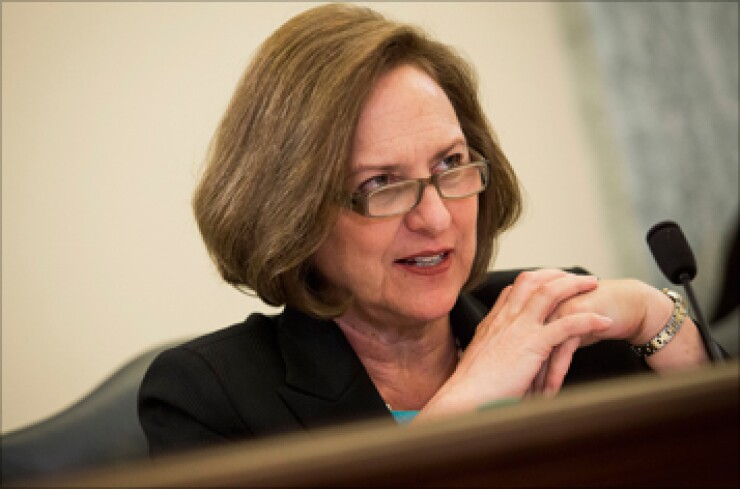
DALLAS – Congress needs to craft sector-specific legislation to fund the renewal of U.S. highways, airports, and other infrastructure rather than a single, all-encompassing measure for all, Sen. Deb Fischer, R-Neb., suggested to state highway officials meeting in Washington.
Finding the federal funding needed for President Donald Trump's $1 trillion infrastructure renewal program would be easier if the problem were to be broken down into its various components, Fischer said Thursday in her keynote address to the annual winter gathering of the American Association of State Highway and Transportation Officials.
"I think it would be very difficult to have one big, huge, comprehensive infrastructure bill dealing with roads and bridges, ports, airports, broadband, pipelines, all of these items," Fischer said. "We would end up with better policy if we would take each section of our infrastructure needs and address them with specific pay-fors but also to meet the different needs of all the separate sectors."
Funding the five-year, $305 billion Fixing America's Surface Transportation Act passed in late 2015 required almost $70 billion of general fund transfers to support the declining federal gasoline tax and other revenues dedicated to the Highway Trust Fund, Fisher noted.
"Finding pay-fors for a trillion dollars is difficult," she said.
Fischer's proposal for a number of sector-specific funding measures would conflict with the aspirations for a single infrastructure funding bill outlined to the same group on Wednesday by Rep. Bill Shuster, R-Pa., chairman of the House Transportation and Infrastructure Committee.
"The main thing is going to be an infrastructure package, and it will cover everything—rail, transit, highways, aviation, and pipelines," Shuster said during his remarks. "We're going to have a big, broad bill."
Fischer said she is optimistic that infrastructure renewal will be the prime focus of the Trump administration.
"President Trump has spoken frequently about the need to invest in our transportation infrastructure," she said. "It is not stimulus, it is an investment in our economy and in our national security."
The measure she introduced last month to divert $21.4 billion per year of fees, duties, and taxes collected at U.S. borders and entry points by Customs and Border Patrol to transportation projects would solve the most immediate problems facing the HTF, Fischer said.
The border fee revenues totaled $46 billion in fiscal 2015 but the agency uses only $2 billion of the collections for operational needs, she said.
The diversion that would be authorized by her Build the USA Infrastructure Act (S. 271) would begin when the FAST Act expires at the end of fiscal 2020 and continue for five years, Fischer said.
The bill would extend the solvency of the HTF and restore the purchasing power of the 18.4 cent per gallon federal gasoline tax that has been lost to inflation since the tax's last increase in 1993, she said.
"America needs a new plan," Fischer said. "By using this existing revenue stream we will provide stability to the Highway Trust Fund. We can do that without increasing taxes or fees."
Rep. Peter DeFazio, D-Ore., the top Democrat on the House transportation panel, told the state officials earlier that his three-part infrastructure proposal would provide up to $60 billion per year of additional funding for roads, airports, and seaports. The first of the three bills, the one on airports (H.R. 1265), was introduced Wednesday.
The plan includes indexing federal fuel taxes to the wholesale price of gasoline and diesel, dedicating an existing federal harbor tax strictly to port maintenance, and allowing airports to raise their passenger facility charge to support additional bonds for terminal projects and other related infrastructure, he said.
The indexing proposal would raise the gasoline tax by about 1.2 cents per year to support up to $33 billion of road bonds per year for 15 years, DeFazio said.
"We need more substantial federal funding," he said.





